Well. It’s been quite a year. There’s probably no need to belabor just what kind of a year it has been. Suffice it to say that for the purposes of The Millions Preview, it has made things crowded and strange. A number of books you see below also appeared on the last preview, but have had their publication dates moved as a consequence of the general disarray of world affairs. We are still not sure about some pub dates, so please let us know if you know something that we don’t. There are a *lot* of books coming out, and there’s just no way to feature them all, so as always, we will continue showcasing new books in our monthly previews as well. Jump into the comments to let us know what you’re looking forward to. Wash your hands, wear your mask, keep a safe distance from others, and pick out a book. There are so many here to keep you company.
Want to help The Millions keep churning out great books coverage? Then sign up to be a member today.
July
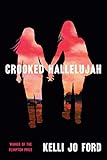
Crooked Hallelujah by Kelli Jo Ford: Called “electrifying,” “spellbinding,” and “a stunner” by Booklist, Shelf Awareness, and Publishers Weekly respectively, Crooked Hallelujah tells the story of four generations of Cherokee women. Whether living in Indian Country in Oklahoma or working to navigate life outside their community in 1980s Texas, they’re faced with forces of nature, class, religion, and family. Ford is a citizen of the Cherokee Nation of Oklahoma, and this is her first novel. (Janet)

Want by Lynn Steger Strong: A gorgeous meditation on work, motherhood, daughterhood, friendship, and the frayed patchwork of American life, told from the perspective of a woman who is going through a bankruptcy while trying to keep her family afloat. The L.A. Times raved, “Want, like our current crisis, exposes a system on the verge of collapse. . . but it’s also powerful proof that novels, and novelists, can still speak undeniable truths.” (Lydia)
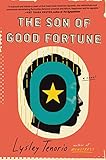
The Son of Good Fortune by Lysley Tenorio: The story of a mother and son, undocumented Filipino-Americans trying to make it work via methods conventional and less so–working in a pizza shop and doing scams, respectively. The novel concludes with a road trip to a desert hippie town and, possibly, a chance to start anew. In a starred review, Publishers Weekly calls Tenorio’s debut novel “Mordant and moving…. Written with great empathy and sly humor…. This is a wonderful achievement.” (Lydia)
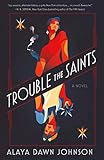
Trouble the Saints by Alaya Dawn Johnson: After two award-winning YA novels, Johnson is back with her first adult novel in eight years. In Trouble the Saints, Phyllis, a young, light-skinned Black woman from Harlem, has become an impossibly skilled assassin working for a Russian mob boss in Manhattan. Her boyfriend’s hands can sense danger; a friend has an oracular gift; the world they live in is steeped in violence, overt and otherwise. Ten years later, Phyllis given up everything. Kirkus called it “A sad, lovely, and blood-soaked song of a book.” (Kaulie)
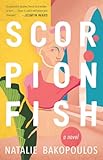
Scorpionfish by Natalie Bakopoulos: A grieving young woman returns to her childhood home of Athens and gets swept up in the lives of her friends and neighbors. Claire Vaye Watkins calls this “a riveting, elegant novel keenly observed in the manner of Elena Ferrante and Rachel Cusk. A divine, chiseled stunner.” (Lydia)

Sensation Machines by Adam Wilson: Adam Wilson’s timely satire of digital and consumer culture mines humor from herd mentality, crypto-currency and video game addiction. In near-future New York, the marriage of Wendy and Michael Mixner is riven first by a stillbirth and then by, of all things, a Universal Basic Income program. Wendy is hired to work on an anti-UBI data-mining project which, in a nice nod to the Nazis, results in the tagline #WorkWillSetYouFree. Michael, meanwhile, is reeling from the murder of his best friend and the loss of his fortune through bad investments. This is a dark snapshot of our cultural moment and where it’s taking us. (Bill)

Alice Knott by Blake Butler. Eight paintings belonging to a reclusive heiress are stolen and destroyed, with their destruction captured on video that goes viral, leading to copycat crimes as well as an international investigation of the heiress herself in Blake Butler’s fourth novel, Alice Knott. Butler is a master of the American dystopic, language-driven novel, and here returns with his penchant for mining the unsettling national psyche, delving so deeply into its unconscious that the resulting delirium is uncannily close to truth. Witness: within are acts of art-terror, a pandemic, and a contagious delirium infecting the US president. (Anne)
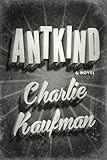
Antkind by Charlie Kaufman: The screenwriter of Adaptation, Being John Malkovich, Eternal Sunshine of the Spotless Mind, and more has written a novel, and it won’t come as a surprise that it’s knotty, weird, and postmodern. Starring the unhappy film critic B. Rosenberger Rosenberg, the novel follows Rosenberg as he finds a long-lost movie, which he becomes convinced might be the best film ever made. But when his copy — the only copy in existence — is destroyed except for one frame, he has no choice but to recreate the rest of it from memory. (Thom)

The Color of Air by Gail Tsukiyama: An historical novel set in 1930s Hawaii, when sugar plantations lured workers from across the globe only to exploit them, The Color of Air centers on Daniel Abe’s return to the islands just as Mauna Loa erupts. In this setting, as lava gushes and flows, the Dr. Abe confronts old secrets – not just his own, but those uncovered by his family, and scores of “ghost voices” and “island voices” alike. (Nick M.)
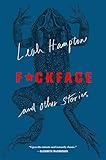
F*ckface: And Other Stories by Leah Hampton: A debut collection of stories taking place in post-coal Appalachia, featuring dead humans, dead honeybees, told with humor and heart. Rachel Heng writes, “These stories take you apart slowly, piece by piece, and by the time you realize what’s happening, it’s already too late. The stories are in your blood now. They live in you, with all their strangeness and decay, isolation and comfort, hellscapes and moments of grace.” (Lydia)
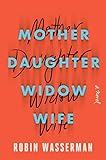
Mother Daughter Widow Wife by Robin Wasserman: Wendy Doe, found on a bus to Philadelphia, has no money, ID, or memory. Suffering from dissociative fugue, she becomes a body to be experimented on to some, a source of fascination and wonder for others. But who is Wendy Doe, really? Untethered from obligations and history, who can she become? The novel follows on the success of Wasserman’s first book, Girls on Fire. Leslie Jamison praises it as “not only an investigation of how female intimacy plays out across landscapes shaped by male power and desire, but an exploration of identity itself.” (Jacqueline)
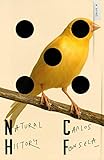
Natural History by Carlos Fonseca (translated by Megan McDowell): A postmodern archival mystery about art, fashion, the natural world, family histories, religion, and climate change. In a starred review, Publishers Weekly writes, “Fonseca’s inventive, complex tale reads like a literary onion, constantly revealing new narratives and layers of meaning . . .The various characters’ perspectives blur the line between memory and fantasy, and their charm will keep readers along for the very intricate ride. Fonseca’s innovative puzzle box of a novel packs a powerful punch.” (Lydia)
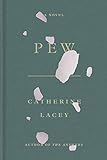
Pew by Catherine Lacey: To some degree all of Lacey’s fiction focuses on ontology and states of being, conveying the intimacy of relationships, as well as their built-in claustrophobia and desire to flee. Lacey has a way of articulating this in a way that’s both beautiful and delightfully jarring. It seems this counterbalance of delightful and jarring will also hold true in her third novel, Pew (what a name, even), which depicts the itinerancy of a person shuffled between homes during a Forgiveness Festival, and who is nicknamed such for having been found sleeping in a church pew. (Anne)

The Party Upstairs by Lee Connell: Anyone who has ever lived in New York, or even just visited the city, can detect the latent drama inherent in every apartment building they walk by. Personal tragedies and triumphs, family dynasties, and comedies of error all inevitably play out beyond the gold entrances assiduously guarded by uniformed door-men. Lee Connell’s The Party Upstairs brings the Aristotelian unities to one Upper West Side apartment building in her debut, which follows a single day in the life of Ruby, the daughter of the super who oversees a gentrifying complex. What follows is Connell’s perceptive observation of how class and politics plays out in the real world, behind the metal chain securing an apartment door.(Ed Simon)

True Love by Sarah Gerard: Called “brash, sexy, and addictive,” Sarah Gerard’s second novel, True Love, is a biting dark comedy that follows the vagaries of one contemporary woman’s navigation of romance during the tech-pervasive, ego-driven lead up to the Trump era. Through Nina, Gerard investigates the complexities of modern love, all of its sexting and texting and outrageousness, while also examining the precarity young workers face as Nina, the aspiring writer who chooses both M.F.A. and NYC, finds her dreams ever deferred. “What’s at stake,” says Idra Novey,” in this frank, ferocious novel is the brutal, ever-elusive salvation of oneself.” (Anne)
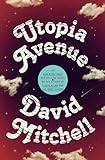
Utopia Avenue by David Mitchell: A new novel from the literary superstar follows the career of a fictional British psychedelic rock band. Mitchell described the book in the Guardian: “Songs (mostly) use language, but music plugs directly into something below or above language. Can a novel made of words (and not fitted with built-in speakers or Bluetooth) explore the wordless mysteries of music, and music’s impact on people and the world? How?” Mitchell asked. “Is it possible to dance about architecture after all? Utopia Avenue is my rather hefty stab at an answer.” (Lydia)

Cool for America by Andrew Martin: Martin, whose 2018 debut novel Early Work introduced us to a cast of erudite readers who were also aspiring writers, returns to that well with Cool for America. A collection of linked stories about the hopes and agonies of art, Cool for America finds Martin once again obsessed with languishing artists who haven’t quite lived up to their own expectations. In one story we’re reunited with Early Work’s Leslie — a writer whose ambitions are tempered by her laziness and alcoholism, if we’re being honest — as she decamps from New York to Montana to shake a persistent depression. Of course, our first image is of her not writing, but trying to write. In “Childhood, Boyhood, Youth,” we follow a book club whose members may or may not have finished reading War and Peace. It all depends on your definition of “reading.” As in his novel, Martin probes the inertia, self-doubt, and outright shiftlessness that is the prerequisite for artistic creation. (Ismail)

Vernon Subutex 2 by Virginie Despentes (translated by Frank Wynne): For Americans whose only knowledge of contemporary French literature begins and ends with Michel Houellebecq, they might benefit by extending their reading lists to include the similarly transgressive Virginie Despentes. The second book in her trilogy Vernon Subutex, Despentes’ novel brings a jaundiced eye to pornography, drug addiction, and punk rock in the noirish titular story of record shop owner and eventual homeless messiah guru who has tapes concerning the dead rock star Alex Bleach. Like William S. Burroughs updated for the age of WhatsApp, Vernon Subutex 2 straps our current world to a chair and interrogates the hell out of it, producing what writer Nell Zink described as the most “zeitgeistiest thing I ever read.” (Ed Simon)

Wonderland by Zoje Stage: You know the drill: a family leaves the city behind for a simple life in the country—where darkness waits. In this version, contrasts are drawn between dense, communal city living and isolated, lonely country life. Stage’s second novel, like Baby Teeth, her acclaimed debut, coils around the part of your spine that tingles when a branch rubs against the window, or the basement door yawns open. (Nick M.)

Blacktop Wasteland by S.A. Cosby: A buzzy summer crime novel, Cosby’s novel is a heist tale against the backdrop of car-racing and the realities of life in America. Walter Mosley says of this novel, “Diamonds and fast cars, trailer park dreams and late night illegal street racing, S. A. Cosby reinvents the American crime novel. Black and white with bills unpaid and no exit in sight, his characters feel the pull of family and swagger with the melancholy ache of wanting to be someone. Blacktop Wasteland thrums and races―it’s an intoxicating thrill of a ride.” (Lydia)

Members Only by Sameer Pandya: Pandya’s debut novel features a middle-aged man, Raj Bhatt, whose life so far has not quite lived up to his expectations. Born in Mumbai, Raj now lives in California, where he teaches at a university. Things are more or less okay. But then a Black couple seeks to join his mostly-white tennis club, and while interviewing them, Raj makes a racist comment he can’t take back. From there, everything falls apart. The white club members kick him out for his racism; at his university, a group of students report him as a reverse racist. Throughout the novel, which The New York Times calls “as witty as it is woeful,” Pandya explores membership, belonging, and what it means to be brown in America. (Jacqueline)
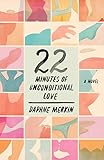
22 Minutes of Unconditional Love by Daphne Merkin: In this latest novel from longtime novelist, essayist, critic, and memoirist Merkin, a woman looks back on a sexual obsession that nearly obliterated her. In 1990s New York City, Judith Stone, a young book editor, meets criminal defense attorney Howard Rose. They begin a sadomasochistic relationship in which Howard pushes boundaries with Judith – sometimes to her liking, sometimes dangerously. The novel centers self-analysis through its form as well as its content; Judith recounts her own affair in the third person, but includes occasional annotations and comments in the first person. Sigrid Nunez calls it “a bracingly honest, keenly insightful, utterly compelling book.” (Jacqueline)
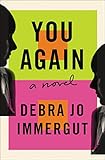
You Again by Debra Jo Immergut: With shades of Paul Auster’s metaphysical noir, Debra Jo Immergut’s You Again asks what it means, for our sense of self, our personal histories, and our very sanity, when we repeatedly encounter who appears to be a doppelganger two decades our junior. Middle-aged New York Abigail Williams, with her staid and safe corporate job, keeps encountering amongst the city crowds a version of herself twenty year younger when she was a Manhattan artist. Immergut’s novel pushes at the contours of identity and change, asking how we can recognize ourselves after so many years have passed. (Ed Simon)
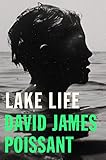
Lake Life by David James Poissant: Set in western North Carolina, Poissant’s absorbing first novel (after a story collection The Heaven of Animals) is fueled by moonshine and melancholia. The Starling family gathers in western North Carolina to say goodbye to their ramshackle lakeside vacation house, which they plan to sell. The farewell gets off to a rocky, breathless start with the tragic drowning of a young boy, whose death ripples through a family as riven by secrets as it is united in love: “Love is dragging things behind you—dead children, houses fallen into disrepair, infidelities lassoed to your back—and continuing on.” (Matt)
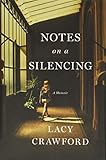
Notes on a Silencing by Lacy Crawford: In 2018, St. Paul’s School—an elite New England boarding school—came under investigation for decades worth of sexual abuse. Thirty years after her assault on St. Paul’s campus, Crawford realizes her truth was the truth—and that she had been gaslit and bullied into silence. In her powerful memoir, Crawford looks back on her assault at the hands of two older boys; the administration’s attempts to undermine and smear her; and the devastation and shame that followed. Kirkus writes: “Trenchant in its observations about the unspoken—and often criminal—double standards that adhere in elite spaces, Crawford’s courageous book is a bracing reminder of the dangers inherent in unchecked patriarchal power.” (Carolyn)

Becoming Duchess Goldblatt by Anonymous: The fragmented nature of the internet lends itself to an aphoristic quality, and its anonymity has resurrected a certain Respublica literaria that can, for all of the web’s reputation, feel downright Enlightenment. The anonymous woman behind the popular Duchess Goldblatt account on Twitter, with her avatar drawn from a Netherlandish Renaissance portrait, is a case in point. With thousands of followers (including Lyle Lovett!) Duchess Goldblatt has self-fashioned a persona delivering bon mots both witty and gnomic, all while using the internet itself as an aesthetic medium where the product is constructed identity. “I’m going to try and be as Duchess Goldblatt for you as I possibly can,” she writes in her pinned tweet, and this anonymous memoir delivers. (Ed Simon)

Inheritors by Asako Serizawa: This debut collection from an O. Henry Prize-winner spans over 150 years, with stories set in colonial and postcolonial Asia and the United States. The stories are written from diverse perspectives and are interconnected. Ben Fountain writes, “Asako Serizawa depicts with rare acuity and nuance several generations of one far-flung family as it’s buffeted by the forces of war, migration, displacement, and that ultimate crucible, time. There are no easy answers or clean resolutions in Serizawa’s stories, but what you will find is the genuine stuff of human experience, rendered with precision and honesty.” (Sonya)
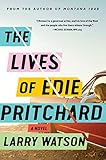
The Lives of Edie Pritchard by Larry Watson: The title character of Larry Watson’s The Lives of Edie Pritchard lives a multitudinous American life, that despite its ordinariness is as complex and baroque as the national story. Edie Pritchard has had multiple jobs and multiple husbands over the course of her long life, and yet her work of self-definition is never done, even as new problems come on the horizon. Set in Montana, and evoking Annie Proulx, The Lives of Edie Pritchard is a testament by one of our greatest “regional” novelists to the power of stories.(Ed Simon)
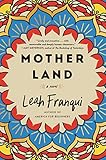
Mother Land by Leah Franqui: What will happen when a strong-willed American woman gets stuck with her also headstrong Indian mother-in-law? Leah Franqui, the critically acclaimed author of America for Beginners, explores identity, culture, and communication by putting her characters into this extreme situation. Shortly after she marries her Indian-born husband, Rachel Meyer finds herself not only living in sweltering Mumbai, but also staying under the same roof with her mother-in-law, whom she barely knows and who sees life differently in every way. Smart, sensitive, sincere, Mother Land encourages us to see the fundamental bond between people behind those culture shock experiences. (Jianan Qian)

Absolute Zero by Artem Chekh (translated by Olena Jennings and Oksana Lutsyshyna): Chekh, a contemporary Ukrainian author of eight novels, was drafted into the Army following the Russian advance on eastern Ukraine in 2014. In Absolute Zero, he lays out a relentless, guileless account of life in post-Soviet military service. This non-fiction account depicts his two-year stint, with nearly a year of it spent on the frontlines defending his nation against “Brother Russia”, as equal parts tedium and terror. Further testimony that lust for war is never far from the heart of a fool. (Il’ja)
 Everything Here is Under Control by Emily Adrian: A tender novel about early motherhood, small-town life, and the various way people make their families. Kevin Wilson writes “Everything Here Is Under Control skillfully lays out a story that converges on motherhood, friendship, and our responsibilities to the world around us, the lives that touch us. A beautiful, bracing novel by an amazing, open-hearted writer.” (Lydia)
Everything Here is Under Control by Emily Adrian: A tender novel about early motherhood, small-town life, and the various way people make their families. Kevin Wilson writes “Everything Here Is Under Control skillfully lays out a story that converges on motherhood, friendship, and our responsibilities to the world around us, the lives that touch us. A beautiful, bracing novel by an amazing, open-hearted writer.” (Lydia)
August
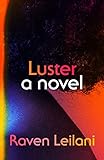
Luster by Raven Leilani: Doesn’t it feel like everyone is raving about this debut? Carmen Maria Machado tweeted, “This novel is ridiculously good…The sentences wrecked me.” Luster centers on twenty-something Edie—Kaitlyn Greenidge describes her as “a slacker black queen, a depressive painter, a damn funny woman”—who gets involved in a white couple’s open marriage. In its starred review, Kirkus says it’s “an unstable ballet of race, sex, and power,” and Brit Bennett calls it a “darkly funny, hilariously moving debut from a stunning new voice.” (Edan)
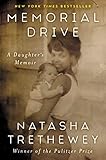
Memorial Drive: A Daughter’s Memoir by Natasha Trethewey: In her searingly beautiful memoir, Trethewey—former U.S. Poet Laureate and Pulitzer Prize-winner—looks back on the great wound of her life: at nineteen years old, her mother Gwendolyn was murdered by her former stepfather. Unafraid in her exploration of grief and trauma, Trethewey writes about growing up as a mixed-raced child in segregated Mississippi; her parent’s failed marriage; their relocation to Atlanta; the abuse doled out by her stepfather; and the lead-up (and aftermath) of her mother’s death. The book also weaves in documents and transcripts kept by Gwendolyn in the days and weeks leading up to her murder, which are heartbreaking to read. Harrowing, tender, and deeply affecting, Trethewey’s memoir is an absolute must-read. (Carolyn)

Butterfly Lampshade by Aimee Bender: Bender’s first novel in a decade (following her bestselling The Particular Sadness of Lemon Cake) begins with a little girl named Francie whose single mother has recently been taken to a mental hospital after a psychotic episode. Twenty years later, Francie is an adult grappling with three memories of otherworldly incidents. The jacket copy asks, “What do these events signify? And does this power survive childhood?” In its starred review, Publishers Weekly calls it “an astounding meditation on time, space, mental illness, and family.” (Edan)

Caste: The Origins of Our Discontents by Isabel Wilkerson: The author of The Warmth of Other Suns, the epic history of the Great Migration of Black Americans from the Southern states to the cities of the North and West, turns her attention to the history of discrimination by caste in the U.S. and around the world. In this timely book, Wilkerson links the American caste system to those in India and Nazi Germany, tracing the hidden costs of systemic inequality on our health and on our political and cultural lives. (Michael)

Intimations by Zadie Smith: In a slim collection of six personal essays, Smith reflects on the early part of 2020, offering her thoughts and feelings about the pandemic, inequality, racism, and injustice, among other topics. A Kirkus review states that “Smith intimately captures the profundity of our current historical moment,” and that her “quietly powerful, deftly crafted essays bear witness to the contagion of suffering.” (Zoë)
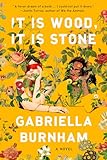
It is Wood, It is Stone by Gabriella Burnham: A well-told second person book feels like an especial treat—the narrative form welcomes us in as much as it reveals the skill of its artifice—and Burnham’s debut manages both with evocative prose. Similes surprise: “The traffic sprawled for hours, barely moving, like a snake that had swallowed a calf.” Setting stretches with tension: “Even after my mind compiled the pieces and located my body in space—here, São Paulo, Brazil, and you, probably in the kitchen—the dread remained. It expanded inside my chest cavity. Mornings in our bedroom back home floated in front of my eyes. Dust particles hovering in the rays of sunlight.” (Nick R.)
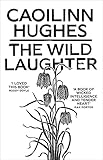
The Wild Laughter by Caoilinn Hughes: When Hart’s father — an Irish farmer whom Hart and his older brother Cormac call “the Chief” — falls terminally ill, Hart discovers that the old man has fallen deeply into debt because of a bad property investment. The Chief always disdained Hart in favor of Cormac, the golden child who left the farm to found a series of successful startups. Now the old man’s death and tangled finances brings Hart into open conflict with his brother and his mother Nóra, a former nun with an icy affect. As the family navigates the humiliation of debt, Hart and his brother try to accommodate their father’s wish for an assisted suicide, which is illegal under Irish law. Hughes, whose 2018 debut novel Orchid & The Wasp explored similar themes of downward economic mobility, delivers a memorable family drama replete with vivid characters who occupy different poles of the economic landscape in the wake of the 2008 global financial meltdown. (Ismail)

The Death of Vivek Oji by Akwaeke Emezi: Emezi’s third novel — following Pet, a finalist for the National Book Award for Young People’s Literature — follows a Nigerian family as they grapple with a strange condition afflicting their son Vivek. As a boy, Vivek suffers from unexplained and terrifying blackouts, during which he disassociates from himself, his family, and his surroundings. He becomes close with his cousin Osita, whose confidence and high spirits help guard his own painful secrets. Over time, the two learn exactly what they’ve been hiding from each other, and Vivek’s condition leads them into a crisis. (Thom)

To the Lake: A Balkan Journey of War and Peace by Kapka Kassabova: In her most recent book, the acclaimed Border: A Journey to the Edge of Europe, Kassabova wrote that a border is a place where “You call into the chasm where one side is sunny, the other in darkness, and the echo multiplies your wish, distorts your voice, takes it away to a distant land where you might have been once.” To the Lake considers more complex distortions of self, as Kassabova reveals the stories and shadows of Lake Ohrid and Lake Prespa, two ancient lakes in Macedonia and Albania. Kassabova has said that she feels as if her new book has “taken a lifetime,” and in some ways, it has–as the book traces her maternal line in a land that predates us all. (Nick R.)
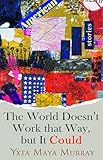
The World Doesn’t Work That Way, But it Could by Yxta Maya Murray: Stories of life and bureaucracy intertwine in the wake of historic disasters, from the western wildfires to Puerto Rico after Hurricane Maria. Murray’s stories feature the Environmental Protection Agency, the Department of Education, and the lives of regular people caught up in the all-too-familiar dystopian currents of the day. (Lydia)
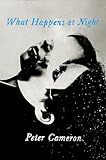
What Happens at Night by Peter Cameron: Calling forth the ghosts of both Franz Kafka and Stefan Zweig, with their depictions of the faded glory of a central Europe about to devour itself as well as the innate absurdity of being a human in such a place (or any place), Peter Cameron’s What Happens at Night provides a distinctly American gloss to the tradition of disorienting and disturbing high Modernism. Checking into the Borgarfjaroasysla Grand Imperial Hotel in a surreal and unnamed European capital, an American couple who has come to adopt a foreign baby in a desperate attempt to salvage their failing marriage encounter a cast of characters who could have come out of The Trial. (Ed Simon)
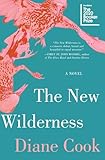
The New Wilderness by Diane Cook : Following a cracking collection of stories, Man v. Nature, which was short-listed for Guardian First Book Award and the L.A. Times Book Prize, The New Wilderness is Cook’s debut novel. It’s a speculative tale about Bea who can’t stay in a ravaged, wasting city, but her only alternative is the untamed Wilderness State. She takes her daughter, Agnes, to live there and the result is a survival story told from the perspective of a person best placed to understand the subject—a mother. “Cook observes humanity as a zoologist might,” says Rachel Khong, “seeing us exactly as the strange animals we really are.” (Claire Cameron)

Via Negativa by Daniel Hornsby: What is the path to personal redemption? The key to restorative justice? For Father Dan, recently booted from his priestly station in his conservative diocese, the path leads west and the key involves a Toyota Camry, a wounded coyote, a bone-handled pistol, and countless hours for silent contemplation of the two-millennia-distant teaching of the Desert Fathers. These and the vistas of the wide-open road to Seattle make for a truly transcendent road novel. (Il’ja)

The Disaster Tourist by Yun Ko-Eun (translated by Lizzie Buehler): A satirical novel about the “disaster tourism” industry sees its protagonist going undercover as a tourist to run QA for her tour company specializing in macabre visits to places devastated by natural and other disasters. Publishers Weekly writes “Yun cleverly combines absurdity with legitimate horror and mounting dread. With its arresting, nightmarish island scenario, this work speaks volumes about the human cost of tourism in developing countries.” (Lydia)

I Hold a Wolf by the Ears by Laura van den Berg: You might be tempted to race through all 11 stories in Van Den Berg’s new collection, her first since Isle of Youth in 2013. This would be unwise, because haste and haunting are incompatible, and you really need to live with these ghosts, to slow your eyes over their uncanny weirdness until you’re both unsettled and seen—the hallmark quality of van den Berg’s writing. (Nick M.)
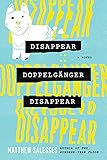
Disappear Doppelgänger Disappear by Matthew Salesses: A hotly anticipated new novel from the author of The Hundred-Year Flood. Protagonist Matt Kim is having a hard time in every aspect of his life when he hears that somewhere out in the world people have been crossing paths with a better version of him, one who excels on all fronts only to eventually go missing. Publishers Weekly writes “Salesses’s tale on the nature of existence triumphs with literary trickery.” (Lydia)
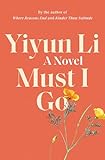
Must I Go by Yiyun Li: Lilia Liska is a survivor. She’s lasted through multiple husbands and raised five kids. She has seen those kids give her many grandchildren. Now, though, with all of her responsibilities fulfilled, she trains her attention on the diary of former lover. Reading and annotating the lover’s diary, she leads us into an intimate and stunning history of passion, loss, and resilience, a novel that moves with all of the unpredictability that makes a life. (Ismail)
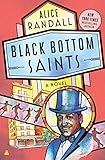
Black Bottom Saints by Alice Randall: Randall’s novel is filtered through Detroit-born Joe “Ziggy” Johnson, who Jet Magazine described in his 1968 obituary as “veteran news columnist, nightclub impresario, and dance instructor.” Detroit-born herself, Randall, an accomplished songwriter and author of the provocative parody The Wind Done Gone, offers a spirited tale of Ziggy’s life and friendships, creating a document of Detroit itself. Randall has said this new book “has everything to do with my origin story”: Randall herself attended Johnson’s own School of Dance: “I realized that Ziggy was not teaching anybody to dance in that school. It was a citizenship school for black girls…It taught us how to be resilient.” (Nick R.)
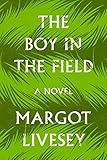
The Boy in the Field by Margot Livesey: Margot Livesey, bestselling author of such novels as The House on Fortune Street and The Flight of Gemma Hardy, brings us a story about three teenage siblings who rescue a boy they find in a field, bloody and near-death. The intervention changes the courses of their lives in three distinctive ways. Lily King says Livesey writes “with intelligence, tenderness, and a shrewd understanding of all our mercurial human impulse” and Publishers Weekly reports that the book “serves up a distinctive blend of literary fiction and psychological thriller.” (Edan)

Love After Love by Ingrid Persaud: Secrets, “electrifying” prose, family bonds broken and remade, and a richly rendered setting—Persaud’s native Trinidad—make this an exciting and anticipated debut from the winner of the Commonwealth Short Story Prize in 2017 and the BBC Short Story Award in 2018. Marlon James describes the novel as “dazzlingly told,” and André Aciman praises it as “Restless, heartbreaking, and intensely spellbinding.” With starred reviews from both Publisher’s Weekly and Booklist. (Sonya)
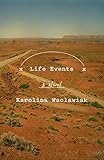
Life Events by Karolina Waclawiak: Evelyn is in her late 30s struggling with an existential crisis, driving Californian freeways and avoiding her maybe soon-to-be ex-husband. As the novel unfolds, she decides to work with terminally ill patients, and the work allows her to grapple with her grief and pushes her to confront her past. Lydia Kiesling says, “Life Events is a hypnotic novel that beautifully grapples with fundamental questions about how to die and how to live. Karolina Waclawiak transports the reader into the streets of Los Angeles, the deserts of the southwest, the apartments of the dying, and a woman’s life at a moment of profound change.” (Zoë)
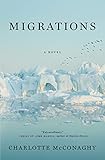
Migrations by Charlotte McConaghy This is a page-turner that Emily St. John Mandel says is, “as beautiful and as wrenching as anything I’ve ever read…” Migrations is set in a world on the brink of catastrophe. Franny Stone arrives in Greenland to find the world’s last flock of Arctic terns and track their final migration. She secures the help of a captain and his crew, who hope the birds will lead them to fish. It’s a dangerous mission and soon the crew understand the true risk to their survival lies inside Franny and her dark history. (Claire Cameron)
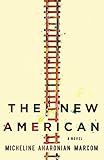
The New American by Micheline Aharonian Marcom: Emilio didn’t know he was undocumented until he was well into college – his parents, immigrants from Guatemala, hadn’t told him. But after a car accident draws the attention of the police and then ICE, Emilio finds himself in a country he’s never known, desperate to make his way back to his home in California. His story is interwoven with lyrical descriptions, partly inspired by interviews with Central American refugees, of the journeys of unnamed others who make their way across the border. (Kaulie)
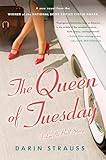
Queen of Tuesday by Darin Strauss: If the subtitle “A Lucille Ball Story” doesn’t pique your interest, perhaps the blessing of Colson Whitehead, who calls this book “a gorgeous, Technicolor take on America,” will convince you to give it a look. Beginning with the conceit that the author’s grandfather may have been involved with Lucille Ball, the author weaves a hybrid memoir-and-novel around the TV star’s life, drawing on known biographical facts (as well as what he knows of his grandfather) to shed new light on a very well-known figure. (Thom)
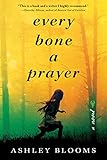
Every Bone a Prayer by Ashley Blooms: 10-year-old Misty can hear things; her empathic ability lets her talk to the crawdads, the creek, everything around her. But after she’s cornered in the barn by a neighbor, she doesn’t want to listen. Meanwhile, strange objects start appearing around her family’s Appalachian home – a statue in the yard, a green light in their trailer – bringing the community’s dark past to the surface. The debut novel from Blooms, Every Bone a Prayer is, as Kiese Laymon puts it, “wonderfully terrifying, intimate and magical.” (Kaulie)

The Frightened Ones by Dima Wannous (translated by Elizabeth Jaquette): A finalist for the 2018 International Prize for Arabic Fiction, Wannous’s novel takes place in contemporary Syria, where a woman named Suleima starts an affair with a novelist who flees Assad’s regime for Germany and uses Suleima as an unwilling muse for his work. (Lydia)
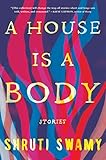
A House is a Body by Shruti Swamy: In this story collection that hops back and forth between India and the U.S., Shruti Swamy delivers a meticulous investigation of the pleasures, pains, and confusions that bodies afford — especially when those bodies belong to people of color. In the hypnotic, almost Lynchian title story (which previously appeared in the Paris Review), a Californian woman watches as a wildfire steadily advances on her home. These are closely observed stories that often turn into provocative studies about the absurdity of our entanglement with others. (Ismail)
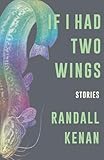
If I Had Two Wings by Randall Kenan: A new collection of short stories by the author of A Visitation of Spirits takes the reader to the vivid fictional world of Tims Creek, North Carolina. Tayari Jones raves, “Randall Kenan is an American master and If I Had Two Wings is his latest gift to us. These unforgettable characters cannot be confined to a page. They are real; they are flawed; they are beautifully human. Each gorgeous story contains a world in miniature and a human spirit in full flower.” (Lydia)
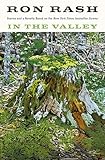
In the Valley by Ron Rash: Short stories and a novella follow Serena Pemberton, the heroine of Rash’s earlier breakout novel Serena, as she returns to the North Carolina wilderness to seek revenge. The New York Times has called Rash “One of the great American authors at work today.” (Lydia)

Vesper Flights by Helen Macdonald: The follow-up to the bestselling H is for Hawk, Macdonald brings together a collection of essays on birding and the natural world. In a starred review, Kirkus calls it ““[An] altogether memorable collection . . . Exemplary writing about the intersection of the animal and human worlds.” (Lydia)

little scratch by Rebecca Watson: Watson’s debut novel explores every single thought of a young woman over the course of a single day. Formally daring and unique, the novel’s structure mirrors the ways the woman’s mind jumps from mundane moments (worrying about being late to work) to the life-changing ones (avoiding the fact that she was raped). Sophie Mackintosh says the book “captures beautifully a rhythm not just of trauma, but also of the small, defiant, everyday happinesses that push through and against it.” (Carolyn)

Talking Animals by Joni Murphy: Joni Murphy’s second novel, Talking Animals, is as remarkable as her first, Double Teenage, which moved “with stealth and intelligence against the North American landscape.” Talking Animals envisions an alternate history of Manhattan, this one cultivated by animals, but sans us human animals. Our protagonist, Alfonzo Vellosso Faca is an alpaca, working a perfunctory job in city hall as he finishes his dissertation, his best friend is a llama, and together “these lowly bureaucrats embark on an unlikely mission to expose the corrupt system that’s destroying the city from within.” The result is devilishly funny and sharply prescient, an Animal Farm for our times. Eugene Lim calls Talking Animals the best novel since Cynthia Ozick’sPuttermesser Papers and implores, “Read it; after all, the sky is falling.” (Anne)

Summer by Ali Smith: Ali Smith’s seasonal quartet unfolded in Autumn four years ago and now concludes in Summer. Set in the lockdown in Brighton, Summer explores many urgent issues we are facing. The theme of detention, for example, reminds us not only of the current pandemic but also of the long-standing precarious lives of immigrants. Rendered by Smith’s graceful and insightful prose, those wide-ranging topics come together beautifully, and we feel more sensible and wiser after reading the book. (Jianan Qian)

Imperfect Women by Araminta Hall: A new thriller from the author of Our Kind of Cruelty, follows a group of women in the aftermath of a murder. Gillian Flynn says “This is simply one of the most disturbing thrillers I’ve read in years. In short: I loved it, right down to the utterly chilling final line.” (Lydia)

Printed in Utopia by Ed Simon: New from Millions staffer Ed Simon, Printed in Utopia reexamines the renaissance for its moments of radical possibility. From the jacket copy: “Printed in Utopia examines the bloody era of the Renaissance in all of its contradictions and moments of utopian possibility. From the dissenting religious anarchists of the 17th century, to the feminist verse of Amelia Lanyer and Richard Barnfield’s poetics of gay rights. From an analysis of the rhetoric of feces in Martin Luther, to the spiritual liberation of Anna Trapnell.” (Lydia)
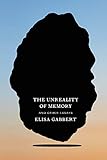
The Unreality of Memory by Elisa Gabbert: A collection of essays on memory and disaster from the poet and essayist. Publishers Weekly writes “Gabbert’s essays manage to be by turns poetic, philosophical, and exhaustively researched. This is a superb collection.” (Lydia)
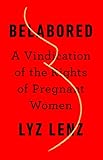 Belabored: A Vindication of the Rights of Pregnant Women by Lyz Lenz: An irreverent, researched excoriation of American maternal mortality rates and the racism and misogyny that shape the experience of people who give birth in America. The books draws upon journalist Lenz’s reporting and her own experiences as a mother from a patriarchal evangelical background. (Lydia)
Belabored: A Vindication of the Rights of Pregnant Women by Lyz Lenz: An irreverent, researched excoriation of American maternal mortality rates and the racism and misogyny that shape the experience of people who give birth in America. The books draws upon journalist Lenz’s reporting and her own experiences as a mother from a patriarchal evangelical background. (Lydia)
September

Transcendent Kingdom by Yaa Gyasi: Gyasi’s first novel, Homegoing, published when she was only 26, told a sweeping story of the descendants of two half-sisters, one who marries the British governor of a coastal slave castle in what is now Ghana, the other held captive in the dungeons below. For her follow-up, Gyasi narrows her scope to one Ghanaian family in Alabama, where Gyasi herself was raised. “At once a vivid evocation of the immigrant experience and a sharp delineation of an individual’s inner struggle, the novel brilliantly succeeds on both counts,” wrote Publishers Weekly in a starred review. (Michael)
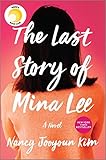
The Last Story of Mina Lee by Nancy Jooyoun Kim: In Kim’s debut novel, 26-year-old Margot Lee returns to her childhood apartment for an unannounced visit and finds her mother, Mina, dead. Her mother’s untimely (and, perhaps, suspicious) death sends Margot on a journey of discovery: to figure out who her mother truly was and what happened to her. Told in two timelines, the novel also explores Mina’s story—from her relocation to Los Angeles from Korea, to falling in love, to the truth of her death. Ingrid Rojas Contreras says, “Nancy Jooyoun Kim writes with brilliant exactitude about the anxious topographies of being a mother and a daughter, and the choices that lead to migration.” (Carolyn)
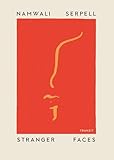
Stranger Faces by Namwali Serpell: We see goofy smiles in the bumper and headlights of a car, stern visages in the front door and windows of a house, faces in the markings on a piece of burnt toast. Few things are as simultaneously prosaic and mysterious as the human face, and Namwali Serpell examines the literary, cultural, mythological, and biological nature of that very window to the soul which. From the disfigured face of John “The Elephant Man” Merrick to the contemporary politics of the emoticon, Serpell provides insight on her eponymous subject across several speculative essays. (Ed Simon)
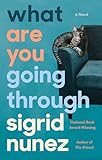
What are you Going Through by Sigrid Nunez: The follow-up to Nunez’s National Book Award-winning novel, The Friend, is a novel about a woman who has a series of encounters with an ex, an Airbnb owner, a friend from her youth, and others. When one makes an extraordinary request, it draws the narrator into a transformation. According to the publisher, it’s a story about the meaning of life and death, and the value of companionship. (Claire Cameron)
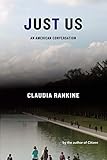
Just Us: An American Conversation by Claudia Rankine: In Just Us, Rankine blends poems, essays, scholarship, images, and fact-checked notes as she examines, questions, and disrupts whiteness. Viet Thanh Nguyen writes, “With Just Us, Claudia Rankine offers further proof that she is one of our essential thinkers about race, difference, politics, and the United States of America. Written with humility and humor, criticism and compassion, Just Us asks difficult questions and begins necessary conversations.” A starred Kirkus review states that Rankine’s newest work “should move, challenge, and transform every reader who encounters it.” (Zoë)

Unforgetting: A Memoir of Family, Migration, Gangs, and Revolution in the Americas by Roberto Lovato: Veteran journalist and co-founder of #DignidadLiteraria writes a combination of memoir and reportage, exploring his upbringing in California and connecting the threads of his experience with the ongoing American project of destabilization and depredation in El Salvador and elsewhere in Latin America. Héctor Tobar raves “There has never been a book about the Latinx experience quite like Roberto Lovato’s Unforgetting. Here is a voice that is outraged, philosophical, thoughtful, blunt, emotional, and, above all, fiercely independent. In this illuminating and insightful memoir, Lovato journeys into the underworlds of the fraught history of El Salvador, and his own California upbringing, and finds injustice, resistance, and hope.” (Lydia)

Winter Counts by David Heska Wanbli Weiden: A thriller set on a reservation in South Dakota where the drug trade has taken hold and the protagonist turns to vigilantism to protect his loved ones. Tommy Orange writes “Winter Counts is a marvel. It’s a thriller with a beating heart and jagged teeth. This book is a brilliant meditation on power and violence, and a testament to just how much a crime novel can achieve. Weiden is a powerful new voice. I couldn’t put it down.” (Lydia)

Against the Loveless World by Susan Abulhawa: The third novel from Susan Abulhawa, Against the Loveless World finds Nahr living in an Israeli prison called the Cube, spending her time reflecting on the life that brought her there. The daughter of Palestinian refugees, she was abandoned by her husband, forced into prostitution, and made a refugee by the US invasion of Iraq before making her way to Palestine and joining an escalating resistance. A powerful and subversive story of trauma and survival for fans of My Sister, The Serial Killer and Her Body and Other Parties, Fatima Bhutto writes that Against the Loveless World “reads as a riot act against oppression, misogyny, and shame.” (Kaulie)

Daddy by Emma Cline: Cline follows her bestselling and critically acclaimed debut novel The Girls with this collection of ten stories, which the jacket copy promises, portray “moments when the ordinary is disturbed, when daily life buckles, revealing the perversity and violence pulsing under the surface.” The collection includes “Marion” from The Paris Review, and for which Cline won the magazine’s esteemed Plimpton Prize. If you got sucked into Cline’s fictionalization of Harvey Weinstein in her story “White Noise,” featured in The New Yorker’s Summer Fiction, then this collection is for you—and for me. (Edan)

The Great Offshore Grounds by Vanessa Veselka: Two broke half-sisters are reunited to claim their estranged father’s inheritance, but instead of money they get something else, something stranger. In its pursuit, Veselka expertly lays bare the realities of poverty, work ethic, and what it means to get by in this country today. (Nick M.)
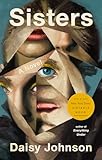
Sisters by Daisy Johnson: Last time it was Oedipus Rex reimagined; this time it’s a modern gothic thriller. After the success of her debut novel Everything Under, Daisy Johnson, the youngest author to be short-listed for the Man Booker Prize, is back with her second novel. Two sisters, July and September, were born just 10 months apart and share an unusually strong bond. But after something terrible happens at school, they’re driven to move with their mother across the country to an abandoned home near the shore. Dread creeps in, the walls have a life of their own, and the bond between the sisters begins to change in strange ways. (Kaulie)
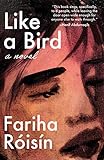
Like a Bird by Fariha Róisín: A young woman dealing with the aftermath of a violent assault creates her own community with the living and the dead. Tanaïs says of the novel, “Like a Bird pulses brilliantly, bright as a fresh wound as it seals and heals itself, as we bear witness to the travails and trauma of our wise young narrator, Taylia. In Fariha Róisín’s delicate, deft prose, the heartbreak of violence and familial estrangement compel a journey―rife with mistakes we all know well― towards a found, motley of mothers and lovers. Róisín’s imagination ruptures narratives about the aftermath of trauma. We are not left scarred, but permanently imprinted with Taylia’s resolute will to find her own way in the world.” (Lydia)

Ace: What Asexuality Reveals about Desire, Society, and the Meaning of Sex by Angela Chen: A major new contribution to the literature of sexuality and desire, Chen uses deep reporting and personal experience to explore the many ways that people navigate asexual identity in a society that emphasizes the importance of sex and romantic attachment at every turn. Aminatou Sow and Ann Friedman say of the book, “Angela Chen’s tenacious search for the precise language to describe her experiences is deeply moving and relatable. This book will inspire you to interrogate every assumption you’ve made about yourself, your sexuality, and your relationships. Ace is a revelation. We can’t stop thinking about it.” (Lydia)
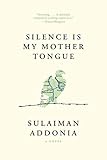
Silence is My Mother Tongue by Sulaiman Addonia: When Saba and her mute brother, Hagos, are brought into a refugee camp, they face the loss of everything that constitutes a home and a future. Saba is uprooted from her previous school, while Hagos has to rely on his sister to communicate with an unfamiliar and more hostile environment. The fragmented form Addonia adopts feels organic to this story. On the one hand, the form does justice to the traumatic nature of refugees’ life experiences. On the other hand, the vignette structure speaks to many readers’ exposure to refugees’ lives; that is, as beholders, we can only observe them through bits and pieces, and we may never get to know the entirety of their suffering. Still, as Addonia shows us, so long as we are willing to listen and see, we may come to share some of their most intimate feelings. (Jianan Qian)
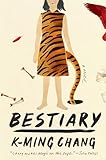
Bestiary by K-Ming Chang: How many ways are there to tell a family’s migratory history? K-Ming Chang, an extremely talented young Taiwanese-American author, offers a wild portrait of three generations of women who have in them tigers, snakes, and birds: the myths of their homeland. While Daughter, the protagonist, explores the buried secrets of her family, she also reveals the family’s fragile and yet staunch connection with the U.S. The transformations of those women’s bodies embody their oftentimes painful adaptations to this new homeland. (Jianan Qian)

The Bass Rock by Evie Wyld: The lives of three women from different eras living in view of a rock off the Scottish mainland are woven together by this Granta Best Young British Novelist and author of All the Birds, Singing. Max Porter writes “The Bass Rock is a multi-generational modern gothic triumph. It is spectacularly well-observed, profoundly disquieting, and utterly riveting. Like all Evie Wyld’s work it is startlingly insightful about psychological and physical abuse. It is a haunting, masterful novel.” (Lydia)
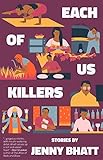
Each of us Killers by Jenny Bhatt: Bhatt has published beautiful work here at The Millions, and here she makes her fiction debut with a gorgeous collection of short stories. Set in India and America, in restaurants, offices, yoga studios, home bakeries, upscale homes and grief-filled shacks, Bhatt brings her characters and settings to life with these gorgeous explorations of class, work, ambition, and so much more, capturing the nuances of life in fiction that glows. (Lydia)
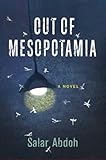
Out of Mesopotamia by Salar Abdoh: A masterful, stylish novel told from the perspective of a disaffected Iranian writer who is drawn to the militias fighting in Syria and Iraq. Abdoh beautifully illustrates the paradoxes of war in the field and on the home front, alternating moments of brutality and comradeship and showing war’s pointless heroisms, its random accidents, its absurdities, and its ongoing human costs. This is at once a probing look at the disaster in Syria and Iraq, and an affectionate yet gimlet-eyed view of masculinity, art, and cultural politics. (Lydia)
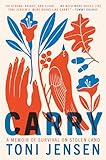
Carry: A Memoir of Survival on Stolen Land by Toni Jensen: In this memoir Jensen explores her own life and the history of violence in America with the through line of guns: guns carried by her father, guns pointed at her at Standing Rock, guns deployed against indigenous women and in classrooms. Terese Mailhot writes, “Carry explores the static and kinetic energies of the American gun—its ability to impose its terrible will from a locked box on a shelf or the hands of an active shooter. Jensen explores the gun’s tragic impact with heartfelt prose and deep intellect—on politics, on history, on Black and Indigenous bodies, on women’s bodies, and on children behind closed doors. Carry unfurls America’s long rap sheet. It is full of difficult and vital news, delivered right on time.” (Lydia)
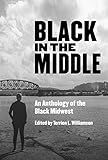
Black in the Middle: An Anthology of the Black Midwest edited by Terrion L. Williamson: A vital collection of writings from writers in settings both rural and urban focusing on Black lives and experiences of the Midwest, where Black communities have been hit hardest by the economic decline of a deindustrialized region. The collection features dozens of contributors, including Leslie Barlow, Kim-Marie Walker, and Tamara Winfrey-Harris. (Lydia)

These Violent Delights by Micah Nemerever: A novel about a relationship between two men in college that spirals into violence, exploring intimacy, desire, and power. Brandon Taylor calls it “an utterly captivating fever dream of a novel whose tone and atmosphere will haunt you long after you finish. More haunting still is the skill with which Micah Nemerever reveals to us the lengths we will go to in order to be known, to be seen, to be understood. A thrilling first novel.” (Lydia)

Homeland Elegies by Ayad Akhtar: A hybrid work of fiction and memoir by the Pulitzer prize-winning author, exploring the experience of Muslims in the world after 9/11 and focusing on the travails of one father and son that lead from America to Europe to Afghanistan. Kirkus calls it “A searing work . . . profound and provocative.” (Lydia)

The Last Great Road Bum by Héctor Tobar: In the 1960s, Joe Sanderson left the Midwest to globe-trot and live a life worth writing about. By 1979, he had joined a leftist band of guerrilla fighters in El Salvador, fighting against the U.S.-backed military junta. Not long after, Sanderson was dead, becoming one of only two known Americans to have fought and died for this cause. In the late aughts, Tobar acquired a trove of Sanderson’s writings, and has since used them as an outline for this fictionalized account of Sanderson’s life—which turned out to be worth writing about, after all. (Nick M.)

Red Pill by Hari Kunzru: Acclaimed novelist Hari Kunzru returns with Red Pill, the long-awaited follow-up to his PEN/Jean Stein Book Award finalist and much lauded 2017 novel, White Tears. Where White Tears delivered a literary thriller and meditation on art, Red Pill explores our nihilistic modern politics and the alt-right. After winning a prestigious writing fellowship in Wannsee, Germany, the narrator spends most of his time watching a TV show about police called Blue Lives, eventually meeting the show’s creator and becoming convinced they are locked in a cosmic battle between good and evil. In a starred review, Kirkus calls Red Pill, “Razor-sharp . . . as an allegory about how well-meaning liberals have been blindsided by pseudo-intellectual bigots with substantial platforms, it’s bleak but compelling . . . ‘Kafkaesque’ is an overused term, but it’s an apt one for this dark tale of fear and injustice.” (Adam Price)

World of Wonders by Aimee Nezhukumatathil (illustrated by Fumi Nakamura): The subtitle of this marvelous book of short essays is “In Praise of Fireflies, Whale Sharks, and Other Astonishments,” and true to its promise of being a veritable Wunderkammer, the poet Aimee Nezhukumatathil turns her attention to disappearing nature in her first book of non-fiction prose. With empathy and humanity, Nezhukumatathil draws upon experiences of nature from Ohio to New York to provide encomium for the splendor of our environment. “What the peacock can do,” she writes, “is remind you of a home you will run away from and run back to all your life,” which is not a bad description of our own tenuous existence in this world which we share with so many other creatures. (Ed Simon)
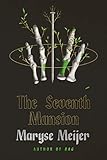
The Seventh Mansion by Maryse Meijer: Following her recent short story collection, Rag, Meijer’s debut novel follows Xie, a fifteen-year-old vegan environmentalist, who is kicked out of high school after an animal cruelty protest goes awry. He spends his days becoming increasingly obsessed with the woods behind his house and the Catholic relic he finds there. Calling the novel “sharp [and] enjoyable,” Publishers Weekly says “This affecting investigation of ethics in a natural world struggling for survival will appeal to readers of character-driven eco-fiction.” (Carolyn)
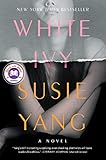
White Ivy by Susie Yang: A young woman who spends her adolescence shoplifting and is sent to her parents’ native China returns to America and reconnects with a wealthy peer in this novel about race, class, growing up, and getting by that Lucy Tan calls “dark and delicious. Ivy Lin eviscerates the model minority stereotype with a smile on her lips and a boot on your neck. Cancel your weekend plans, because you won’t be able to take your eyes off Ivy Lin.” (Lydia)
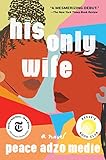
His Only Wife by Peace Adzo Medie: A novel about a Ghanaian seamstress who agrees to marry a man she doesn’t know, only to discover that his family intends for her to win him back from someone else. Wayétu Moore calls it “A hilarious, page-turning, sharply realized portrait of modern womanhood in the most infuriating of circumstances. A gem of a debut.” (Lydia)

Mother for Dinner by Shalom Auslander: CanAms aren’t the people who live north of Buffalo, at least in Auslander’s mind. They’re actually Cannibal-Americans, and they trace back generations. In this dark comedy, the matriarch of the Seltzer family, on her deathbed, instructs the seventh of her eleven children that her last wish is for them to eat her. The problem is that by now they’ve assimilated, and the old ways are lost—or are they? Another relative might hold the key in this novel that, among other things, is about what family members owe one another, and what we owe our families. (Nick M.)
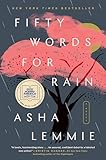
Fifty Words for Rain by Asha Lemmie: A young woman struggles to find her place in post-war Japan as the daughter of a Japanese aristocrat and a Black American G.I. Publishers Weekly calls it “[An] epic, twisty debut… Sometimes bleak, sometimes hopeful, Lemmie’s heartbreaking story of familial obligations packs an emotional wallop.” (Lydia)

Likes by Sarah Shun-Lien Bynum: Book number three by the National Book Award finalist and New Yorker 20 Under 40 winner collects nine of the author’s greatest short stories. In settings that range from a Waldorf school fair to the Instagram page of a twelve-year-old, the characters in these stories move through adolescence, childhood, and parenthood, all while dealing with the miseries of life under late capitalism. Take it from Yiyun Li: this book convinces you that “we can live as fully and expansively as these stories.” (Thom)

The Distance by Ivan Vladislavić: The South African writer has written engaging, experimental works over the years, notably The Folly, an absurdist fable about an imaginary construction project and The Exploded View, a fragmented portrait of Johannesburg’s periphery. Here, a blocked novelist, Branko, turns to a scrapbook he compiled some forty years earlier documenting the epic, culturally charged fights between Joe Frazier and Muhammad Ali. Aided by his brother Joe, Branko uses the scrapbook to call forth his past: “It was a journal written in code, the most complete record of my teenage life to which I had access, despite the fact that I was not mentioned in it once.” (Nick R.)
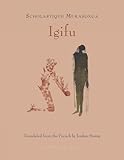
Igifu by Scholastique Mukasonga (translated by Jordan Stump): From the National Book Award finalist, a new collection of autobiographical stories about Rwanda. “Their resilience is inspiring, while their need to be resilient is a tragic reminder,” says Eileen Gonzalez. In the title story, a five-year-old Colomba tells of the hunger—or igifu—in her stomach, a dizzying abyss that she falls into, only to be saved by her mother who brings her back with a nourishing porridge. It’s one example of how, as Zadie Smith says, Mukasonga’s work, “rescues a million souls from the collective noun genocide.” (Claire Cameron)
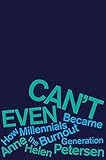
Can’t Even: How Millennials Became the Burnout Generation by Anne Helen Petersen: You may recognize the title of this book from the viral article that it grew from: in January 2019, Buzzfeed’s Anne Helen Petersen published an essay that argued that, contrary to cultural myths about a spoiled generation obsessed with avocados and skincare, millennials are an overworked, overwhelmed and exhausted cohort, worn down by school debt, job instability, and a cult of productivity that extends into social life. Petersen expands her argument with extensive reporting, interviews, and analysis to create what Publishers Weekly calls, “an incisive portrait of a generation primed for revolt.” (Hannah)
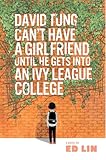
David Tung Can’t Have a Girlfriend Until He Gets Into an Ivy League College by Ed Lin: Award-winning author Ed Lin’s first coming-of-age novel explores cultural norms, class tensions, first-love, bullying, and parental pressures. Marie Myung-Ok Lee describes the novel as “a fast-paced, acid-tongued, hilarious teen drama for our age.” Sheba Karim notes that “Lin writes with a keen sense of character; even the most minor characters spring alive off the page.” (Zoë)


Exposition by Nathalie Léger (translated by Amanda DeMarco); The White Dress by Nathalie Léger (translated by Natasha Lehrer): French author Nathalie Léger’s Suite for Barbara Loden was hailed by Richard Brody in The New Yorker as “a remarkable new book that does everything—biography, criticism, film history, memoir, and even fiction, all at once, all out in front.” It was the second book of a “triptych” whose other two books will be published in English this fall by Dorothy. All three superimpose the story of a female artist against Léger’s own life. In Exposition Léger focuses on the Countess of Castiglione, who lived at the dawn of photography and set out to become the most photographed woman in the world. Long before the ubiquity of the camera and our selfies, this parallel history invites inquiry into beauty and vanity alongside the commodification of the image and self. Léger’s third and final book in the series, The White Dress, considers the life and tragic death of performance artist Pippa Bacca, who was raped and murdered while hitchhiking on a trek from Europe to Jerusalem while wearing a wedding dress. Using Bacca as her muse, Léger questions the risks women are forced to take in both art and life. (Anne)
October

Leave the World Behind by Rumaan Alam: “Step into our beautiful house and leave the world behind,” reads the Airbnb posting for the charming Hamptons house rented by a Brooklyn family for a one-week vacation. The world has other ideas. Shortly into their stay, the East Coast power grid goes down, New York City is plunged into darkness, warplanes roar across the sky—the sonic boom “a rend in heaven right above their little house”—and, worse, the rental home’s owners appear at the front door. An exquisitely tense novel of manners in the midst of a catastrophe from which there is no safe haven, however well-furnished. (Matt)

Jack by Marilynne Robinson: Pulitzer Prize-winner Marilynne Robinson returns to her now-classic fictional world of Gilead, Iowa, with the latest novel, Jack. This time, the story focuses on John Ames Boughton, the self-indulgent son of the town’s Presbyterian minister. His love life with Della Miles sheds visceral light on the then-scorned interracial romance that still reminds us of the failed promises of today’s American life. Like all her previous great novels, Robinson’s Jack is a deep interrogation of what it means to be American, past and present. (Jianan Qian)

The Silence by Don DeLillo: The prerelease literature for Don DeLillo’s The Silence takes pains to note that DeLillo completed his new novel mere weeks before the advent of Covid-19. One understands why when one reads the plot summary: Five people on Super Bowl Sunday in the near future, trapped together in a Manhattan apartment in the midst of an ongoing catastrophe. In The Silence, DeLillo trains his postmodern meditative powers on what happens when our connection to technology is severed, and asks what ultimately makes us human. As Joshua Ferris writes in The New York Times Book Review: “DeLillo offers consolation simply by enacting so well the mystery and awe of the real world.” (Adam Price)

The Hole by Hiroko Oyamada (translated by David Boyd): Fans of Hiroko Oyamada’s The Factory— a curious and delightfully eccentric novel that follows four workers through their jobs at a Kafkaesque labyrinthine factory—will be delighted to know that New Directions is publishing the English translation of Oyamada’s follow-up novel, The Hole. Work figures into this book too, when a couple relocates to a rural area for the husband’s job, the wife is left with an abundance of time. She explores the countryside, finding various unlikely creatures, and particularly a hole that seems to be made just for her in this novel that is “by turns reminiscent of Lewis Carroll, David Lynch, and My Neighbor Totoro.” (Anne)
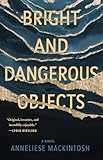
Bright and Dangerous Objects by Anneliese Mackintosh: A beautiful novel about an undersea welder who juggles her desire to join a mission to Mars with the reality of her pregnancy. This is a lovely and fascinating book about the kind of work that is usually invisible, and a kind of maternal ambivalence that reaches for the literal stars, told from the perspective of a singular, well-drawn protagonist. (Lydia)
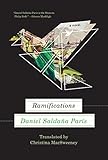
Ramifications by Daniel Saldaña París (translated by Christina MacSweeney): A young man works through the aftermath of his mother’s abandonment when he was a young child, from the author of the critically acclaimed Among Strange Victims. (Lydia)
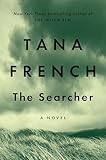
The Searcher by Tana French: French, who made her name writing six bestselling mysteries starring detectives from the fictional Dublin Murder Squad, has since branched out into stand-alone books. In this one, a retired Chicago cop buys a house in a rural town in Ireland’s Lonesome West, hoping to put police work behind him. But of course trouble finds him in the form of a local boy from a dysfunctional family who needs help finding his missing brother. If you are a French obsessive, you don’t need to know the rest. Just pre-order and call in sick for a couple days after October 6 when the book comes out. (Michael)

At Night All Blood is Black by David Diop (translated by Anna Moschovakis): A debut novel about Senegalese soldiers who fought with the French army in World War One, and the winner of the Prix Goncourt des Lyceens student selection in France. (Lydia)
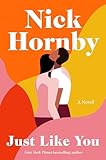
Just Like You by Nick Hornby: The much-loved author of High Fidelity, About a Boy and other hits is out with another unlikely romance – this one between Lucy, a nearly divorced 41-year-old schoolteacher with two sons, and Joseph, a part-time butcher half her age who’s still living at home with his mom. When they meet, Lucy’s looking for a babysitter but winds up with something more. In this age of lockdowns and social distancing, the novel asks timely questions about how people manage to connect when confronted with seemingly insurmountable obstacles. Sometimes, this brutally funny novel suggests, the perfect match might be the person who’s utterly unlike you. (Bill)

The Cold Millions by Jess Walter: The wait is over! After eight long years, Walter is following up the hilarious and compulsively readable Beautiful Ruins, with a historical novel about the beginnings of the labor movement in Walter’s hometown of Spokane, Washington. Early reviews are rapturous, including this one from Anthony Doerr: “The Cold Millions is a literary unicorn: a book about socio-economic disparity that’s also a page-turner, a postmodern experiment that reads like a potboiler, and a beautiful, lyric hymn to the power of social unrest in American history.” (Michael)
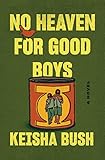
No Heaven for Good Boys by Keisha Bush: This “modern-day Oliver Twist,” as the publisher describes it, is set in Senegal, and features child protagonists Ibrahimah (six years old) and his cousin Etienne. Lured from his rural village to the city of Dakar by a seemingly kind teacher of the Koran, Ibrahimah is soon forced to beg on the streets for money he will never see. He and Etienne must find their way back home through the underbelly of Dakar. This is Bush’s debut, a tale of resilience and survival, after a career in corporate finance and international development in Dakar. (Sonya)
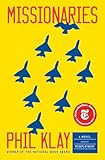
Missionaries by Phil Klay: Despite soul-sapping fatigue, a soldier-medic adept at patching up the war wounded and a journalist equally adept at covering American war find the chance to enter yet another conflict zone irresistible. A calling of sorts. But whence the call? From its appeal to ego—the belief that one is among the favored few tasked with making things right in the world? As acolytes to violence, if not by preference then by necessity? With Missionaries Klay, winner of the National Book Award in 2014, has dropped a novel on us of a muscular veracity as terrifying and important as it is rare in contemporary writing. (Il’ja)
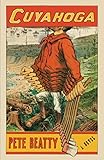
Cuyahoga by Pete Beatty: Debut novel Cuyahoga by Pete Beatty ‘defies all modest description” according to Brian Phillips. The novel’s a mix of tragedy and farce that evokes the kitchen sink of classics (high and low): the Greek classics and the Bible alongside nods to Looney Tunes, Charles Portis, and Flannery O’Connor. Set in 1837 Ohio, Medium Son narrates the tale of Big Son, who looks for a steady wage and in doing so stumbles into a series of misadventures that involve (but are not limited to) elderly terrorists, infrastructure collapse, steamboat races, wild pigs, and multiple ruined weddings. A boisterous adventure, Cuyahoga at its essence, per Phillips, is “a ramshackle joy from start to finish.” (Anne)
November
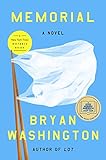
Memorial by Bryan Washington: In the follow-up to his 2019 story collection Lot, Washington introduces us to Mike and Benson. They’re a couple, and though they haven’t been together forever, their relationship has lasted long enough for them to both become vaguely dissatisfied. Their rather boring comfort gets shaken up by the arrival of Mike’s mother Mitsuko from Japan: she reveals that his father is dying, and while Mike travels to Osaka to, Mitsuko stays behind with Benson. The result is not only an exploration of a kaleidoscopically diverse America — Mike is a Japanese American man who works at a Mexican restaurant and dates a Black man — but a moving portrait of two young men who are figuring out exactly who they are in this world. Anyone who enjoyed Washington’s dreamlike yet textured meditations on life in Houston in Lot will be enchanted with Memorial. (Ismail)

The Office of Historical Corrections by Danielle Evans: Following the success of her 2010 story collection Before You Suffocate Your Own Fool Self, Evans returns with this funny collection whose stories play on the absurdities of race in America. In one story, a white college student is forced to reinvent her entire identity after an embarrassing photo of her sporting a Confederate flag-themed bikini makes the rounds. In the title story, a D.C.-based professor discovers a conspiracy of Pynchon-esque proportions, one that threatens to derail her entire life and to destabilize her understanding of history. These are absurd stories for absurd times. (Ismail)

The Swallowed Man by Edward Carey: Following up on the triumph of his historical novel Little, Edward Carey’s latest novel brings a similarly fabulist perspective to the Italian legend of Pinocchio. The author makes clear Pinocchio’s connection to concerns both universal and contemporary, in a story that’s as much about creation and fatherhood as it is about a conscious marionette who wishes that he was a real boy. “I am writing this account, in another man’s book, by candlelight, inside the belly of a fish,” writes that marionette, and Carey proves once again how there is a magic in that archetypal familiarity of the perennial fairy tale. (Ed Simon)
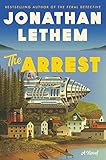
The Arrest by Jonathan Lethem: Something’s happened between apocalypse and inconvenience, and that something is The Arrest. Put simply, business as usual has stopped working. Guns don’t fire, computers don’t work, and cars don’t drive. For everyone, this poses problems. For Sandy Duplessis, a Hollywood screenwriter, it necessitates change, so he’s moved to rural Maine to try to make a new life for himself with his sister—that is, until the day his former associate shows up with a nuclear-powered supercar capable of smashing its way across the continental US. Hijinks ensue. (Nick M.)

The Bad Muslim Discount by Syed M. Masood: In this sparkling debut novel, Anvar Farvis wants out of 1990s Karachi, where gangs of fundamentalist zealots prowl the streets. Meanwhile, thousands of miles away in war-torn Baghdad, a girl named Safwa is being suffocated by life with her grief-stricken father. Anvar’s and Safwa’s very different paths converge in San Francisco in 2016, where their very different personalities intertwine in ways that will rock the city’s immigrant communities. Gary Shteyngart has called this “one of the bravest and most eye-opening novels of the year, a future classic.” (Bill)
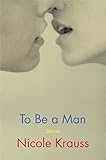
To Be a Man by Nicole Krauss: How many men can a woman’s life hold? By weaving stories about aging parents, generations gaps, newborn babies, and coming of age, Krauss’s new collection looks the lives of women at the point where the forces of sex, power and violence come together—in a couple. Krauss is a National Book Award finalist and New York Times–bestselling author of The History of Love and Great House, among others. The stories in this book mirror each other and provide a balance that makes the collection, as the publisher says, “feels like a novel.” (Claire Cameron)
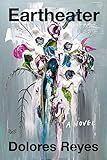
Eartheater by Dolores Reyes, (translated by Julia Sanches): This debut from an Argentinian teacher and activist tells the story of a young girl with a strange desire to eat dirt. Her compulsion leads to a powerful clairvoyant gift: eating earth allows her to find the bodies of people who have gone missing, and to know the circumstances of their murders. Her first taste of dirt teaches her the truth about her mother’s death. She tries to keep her visions secret but when people hear of her gift, they beg for help in finding their own loved ones. (Hannah)
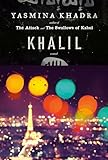
Khalil by Yasmina Khadra (translated by John Cullen): In this first-person thriller by Yasmina Khadra, the pseudonym of former Algerian army officer Mohammed Moulessehoul, Khalil, a young Belgian man of Moroccan descent, tries to detonate a suicide vest outside the Stade de France in Paris – and fails. Fraternel Solidarity, an ISIS affiliate, has other plans for Khalil. He returns to Belgium, but must hide the truth both from the authorities and his own family, anticipating all the time his next mission. What follows is the story of a man struggling with questions of religion, politics, and family. (Jacqueline)

The Sun Collective by Charles Baxter: It’s been a while since we’ve seen a novel from Charles Baxter—though the past decade has brought two short story collections; he’s one of those writers who can do both, superbly. Now, in his sixth novel, he tells the story of intersecting lives in Minneapolis: a missing actor, the actor’s desperate mother, a young woman addicted to a drug that gives a feeling of “blessedness,” and a quasi-religious community group, The Sun Collective. (Hannah)
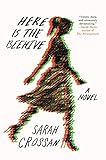
Here is the Beehive by Sarah Crossan: Crossan’s first novel for adult readers opens on a now three-year-old heady affair between two people, Ana and Connor. When Connor dies, Ana finds herself trapped in a grief she cannot share, for someone whose connection to her is unknown to anyone else in the world. Rather than vilifying Connor’s wife, Rebecca, the “shadowy figure who has always stood just beyond her reach,” Ana seeks her out. A gripping exploration of obsession, risk, and loss. (Jacqueline)
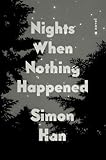
Nights When Nothing Happened by Simon Han: Simon Han’s literary debut introduces us to the Cheng family of Dallas, living successful personal and professional lives while helping to support extended relatives in China. Nights When Nothing Happened received high praise from Lorrie Moore, who called it a “tender, spiky family saga about love in all its mysterious incarnations.” Han’s novel explores what belonging means, both in terms of a family and a nation, as Nights when Nothing Happened brings texture, nuance, and subtlety to the reductionist condescension of the “model minority” trope. (Ed Simon)

Thirty Names of Night by Zeyn Joukhadar: By the author of The Map of Salt and Stars, a novel about three generations of Syrians linked by a particular species of bird. R.O. Kwon says of the book, “Zeyn Joukhadar’s new book is a vivid exploration of loss, art, queer and trans communities, and the persistence of history. Often tender, always engrossing, The Thirty Names of Night is a feat.” (Lydia)

Bring Me the Head of Quentin Tarantino by Julián Herbert (translated by Christina MacSweeney): Who could resist a story collection with a title like this? In the deliriously pulpy title story, a Mexican drug lord who could pass for Quentin Tarantino’s twin kidnaps a film critic so he can discuss Tarantino’s films while he sends a squad of goons to kill the doppelgänger who has colonized his consciousness. The collection’s other stories, ranging from antic to dire, dissect the violence and corruption that plague Mexico today. The raffish cast includes a cokehead, a ghost, a personal memories coach, and a man who discovers music in his teeth. Collectively, they ask the question: How much violence can a person, and a country, take? (Bill)
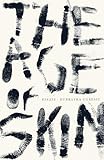
The Age of Skin by Dubravka Ugrešić (translated by Ellen Elias-Bursac): A new book from Dubravka Ugrešić, one of Europe’s foremost critics and most influential writers, is always worthy of celebration. Exiled from her native Croatia after the fall of Yugoslavia, Ugrešić brings a wisdom and vision and dark humor that’s particularly pertinent in our turbulent times. In The Age of Skin she touches on vast and varied cultural references, “from La La Land and Dawn of the Planet of the Apes, to tattoos and body modification, World Cup chants, and the preservation of Lenin’s corpse—takes on the dreams, hopes, and fears of modern life.” (Anne)

Lord the One You Love Is Sick by Kasey Thornton: This debut novel in the form of linked stories is an unflinching look at the dark truths that dwell just beneath the sunny surface of small southern towns. The fictional Bethany, set somewhere in the author’s native North Carolina, is “like a nice Persian rug that had been stapled into place over a damp floor for a hundred years. Peel up a corner and see what you find.” What we find in the collection’s opening story is a young man dying from a drug overdose, which has rippling fallout for his mother, his gay agoraphobic brother, his best friend, his best friend’s wife – in the end, just about everybody in Bethany. The writing is assured, understated yet propulsive. Kasey Thornton is a writer to watch. (Bill)
December
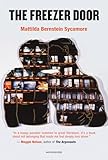
The Freezer Door by Mattilda Bernstein Sycamore: In The Freezer Door, award-winning author Mattilda Bernstein Sycamore meditates on connection, loneliness, sex, social conformity, trauma, and more. Wayne Koestenbaum describes this new work as “a book that defies borders and uses language to dive directly into mystery.” And, Maggie Nelson declares, “I really love Mattilda Bernstein Sycamore’s The Freezer Door…I stand deeply inspired and instructed by its great wit, candor, inventiveness, and majesty.” (Zoë)
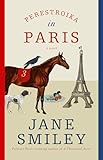
Perestroika in Paris by Jane Smiley: The “Perestroika” in Pulitzer Prize-winner Jane Smiley’s new novel refers not to Mikhail Gorbachev’s policy of Soviet liberalization, but rather a spunky French racehorse who is the center of a group of animal friends in her beast fable. Author of the King Lear adaptation A Thousand Acres and of the immaculate campus novel Moo, Smiley has always had a talent for animal representations both charming and truthful (perhaps reflecting those years spent at the Iowa Writer’s Workshop). Perestroika in Paris features not just the titular equine, but also the horse’s friend, a German shorthaired pointer named Frieda, while recounting their lives in the City of Light. (Ed Simon)
The post Most Anticipated: The Great Second-Half 2020 Book Preview appeared first on The Millions.











